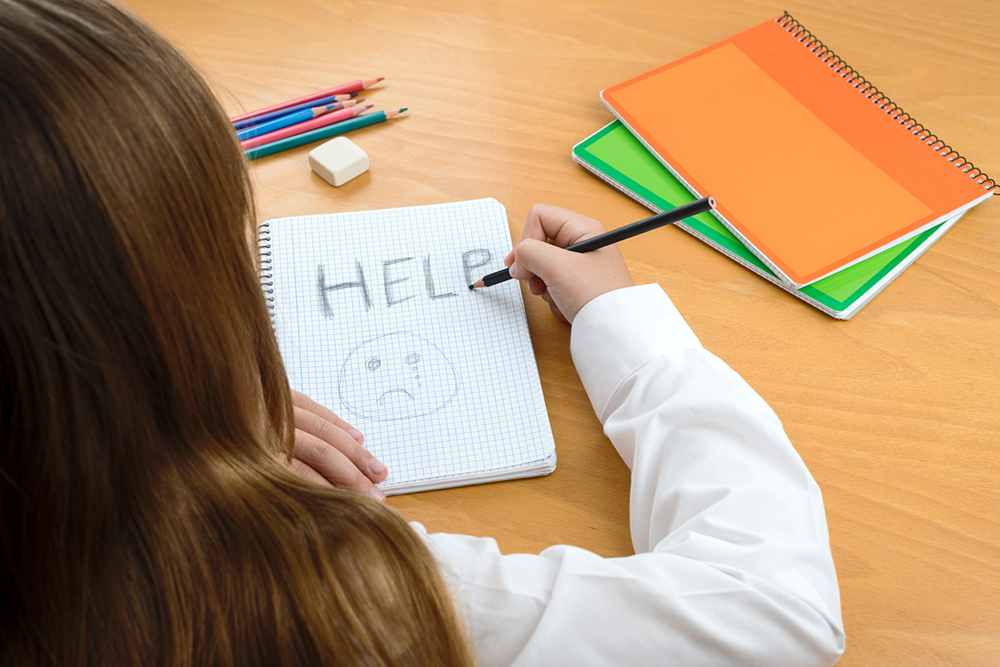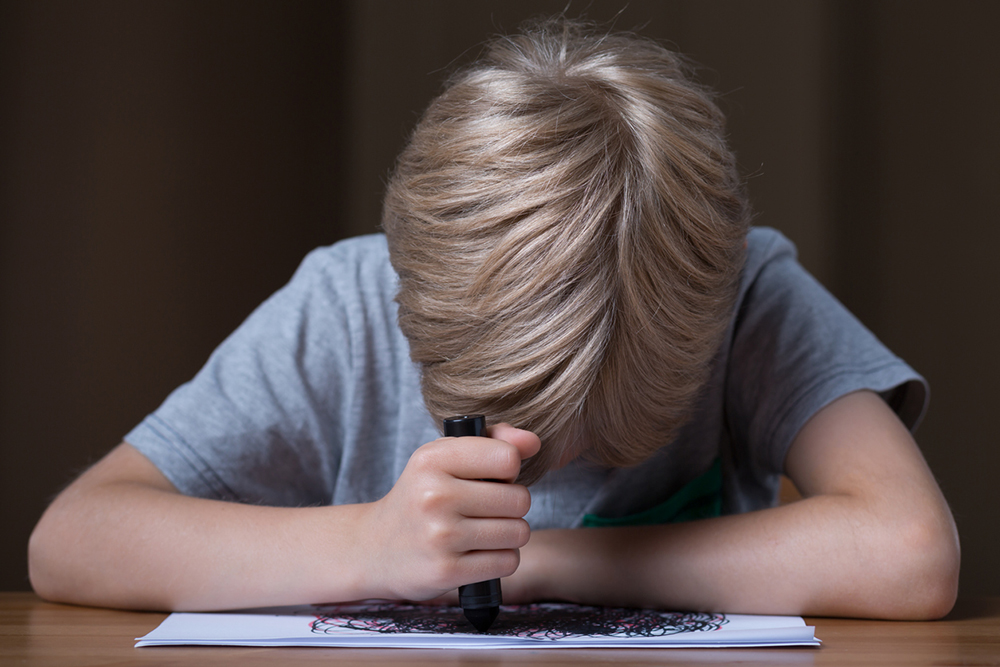My 16 year old daughter has had anxiety attacks since starting secondary school. At first I tried to ignore it. I didn’t want to make a big thing of it. If I acknowledged it, it would seem real, and surely it couldn’t be real. She didn’t have anything to be anxious about did she?
Eventually I realised she wasn’t just making it up or attention seeking; it was real. She didn’t want to feel this way. She felt embarrassed and annoyed with herself that she couldn’t deal with ‘normal’ situations that happened in school.
She attended a large secondary school and they tried to be helpful. She saw the school nurse and was given a pass with permission to leave the classroom should she need to. The teachers were not consistent in how they dealt with her however and often made her feel worse. Eventually, she felt completely unable to cope and left school to be educated at home. I have heard the same sort of story many times since.
This morning my eldest daughter (24) told me that of all her friends, she can’t think of one female of her age (including herself) who has not suffered to a greater or lesser degree from some form of anxiety/depression. Of her male friends, she could name only two who are, as she put it, “mentally stable”.
I was shocked and upset. My daughter has always been so happy and capable, someone who people come to if they are having a hard time and someone who wants to spend her life helping people who struggle.
There is something going badly wrong in our society and whatever it is seems to be affecting our youth most of all.
Mental health is certainly high in the public consciousness at the moment and of course there should be much more help available but I always feel frustrated that we are not addressing why so many young people feel this way. It’s as though we are constantly trying to put a plaster over a cut whilst ignoring the person wielding the knife.
In a recent survey of wellbeing by PISA (Programme for International Student Assessment) for children aged 15, the UK came 38th out of 48 countries in terms of how happy they felt.
In our relatively affluent society, why is there such a problem? Why are our young people so unhappy and why does it seem worse for this particular generation?
It seems to me there are two major differences between this and the last generation:
- Social media – The most obvious difference is the rise and complete dominance of social media. This must be a factor. It can lead to anxiety in so many ways. We are constantly comparing ourselves and everything we do to other people. It is there 24 hours a day. Many people only really switch off when they sleep.
- Excessive pressure at school – We test children from the minute they start school and assess them on an almost daily basis. Many children are given excessive amounts of homework and we try to cram too much into the curriculum.
I wonder what schools can do to help and I suspect that without government intervention, nothing much will change. As a teacher, it is very hard to fight against a system you know is wrong. So many teachers do their very best to relieve pressure on children and as a consequence, suffer themselves, and as a consequence often leave the profession. I feel like screaming at the government to stop and listen; listen to what teachers and other professionals who work with children have to say.
The Scottish Curriculum for Excellence seems to have the right idea. It puts the idea of wellbeing at the heart of education and sets out its stall even before mentioning literacy and mathematics.
‘The responsibilities of all include each practitioner’s role in establishing open, positive, supportive relationships across the school community, where children and young people will feel that they are listened to, and where they feel secure in their ability to discuss sensitive aspects of their lives; in promoting a climate in which children and young people feel safe and secure; in modelling behaviour which promotes health and wellbeing and encouraging it in others; through using learning and teaching methodologies which promote effective learning; and by being sensitive and responsive to the wellbeing of each child and young person’
The Scottish idea of having an identified member of staff for each child seems like a great idea, although it must be difficult to work in practise:
‘The health and wellbeing of every child and young person is greatly enhanced through the individual support and pastoral care which they receive through having an identified member of staff who knows and understands them and can support them in facing changes and challenges and in making choices. Members of staff are often best placed to identify even minor changes of mood in a child or young person which could reflect an important emotional, social or mental health issue with which that child or young person needs help or support. It is important that children and young people feel that they can share their anxieties with an appropriate individual who has the skills, rapport, responsibility and the time to listen and to help, or can identify appropriate sources of support.’
PSHE has been non-statutory in the English national curriculum, and it has been left up to schools to decide how they will tackle it and to draw upon ‘best practice’. However, it will be compulsory from 2020.
With the ever-growing concerns about mental health, let’s hope that schools somehow manage to make it more of a priority despite the huge external pressures they are under; not just giving a nod to it or ticking another box, but so that pupils know their concerns and wellbeing really are taken seriously. It’s too late for my daughter; she will look back on those formative years and feel the school system failed her. There must be change or we are stacking up huge problems for the future.
View our range of Mental Health and Wellbeing resources here
With thanks to Beverley Smalley for writing this blog. Beverley is a mum, an education specialist, writer and former primary school teacher.




